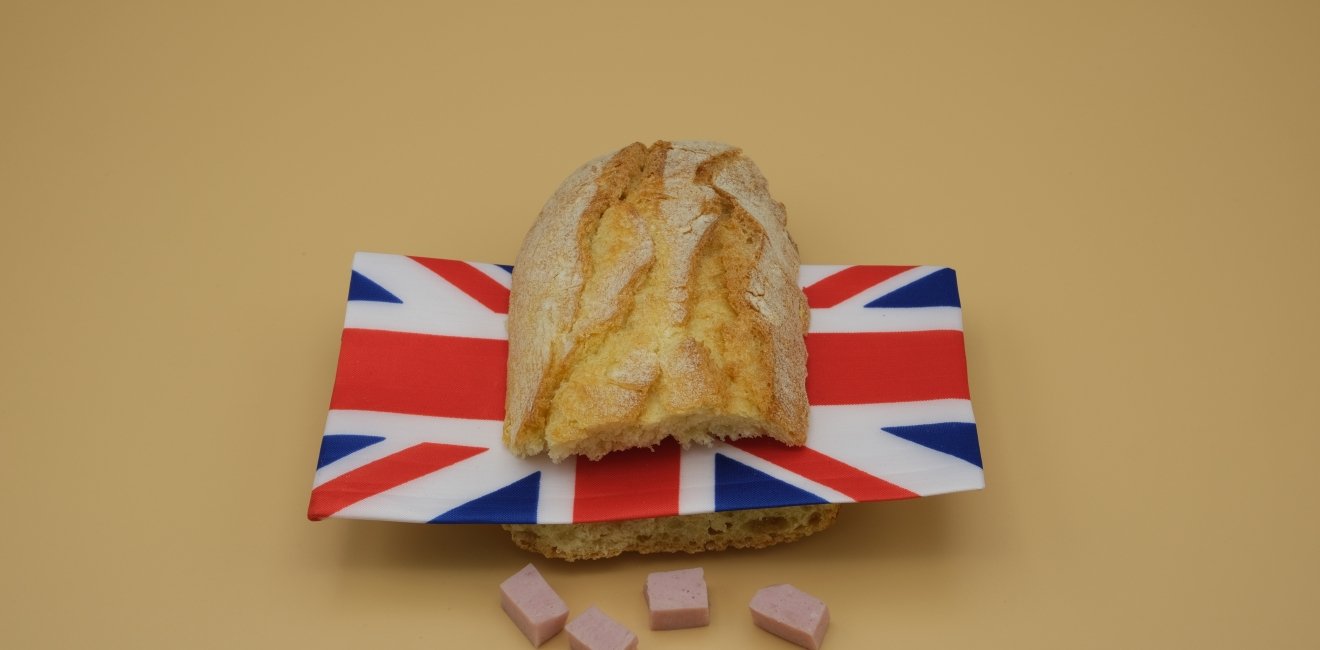Chancellor Angela Merkel’s farewell visit to London on July 1 announced publicly that the Wurst (sausage) war was behind them. Her purpose was to reset UK-German relations and begin a new chapter. To the public, her visit seemed to endorse Prime Minister Boris Johnson’s stand on the United Kingdom’s sovereignty, but in the quiet of 10 Downing Street, she had a warning: keep your word and abide by your agreements with the European Union (EU). The Northern Ireland Protocol, negotiated in 2019 and finalized in December 2020 is an international agreement which must be respected. Should the UK fail to keep its terms, the EU would be obliged to bring the case before the European Court of Justice. Amidst the charm blitz of Merkel’s visit, her threat seemed far-fetched. One week later, the threat has been resurrected.
A ceasefire in the war over the Wurst and other cold meats shipped from Britain to Northern Ireland appeared certain. EU Vice President Maroš Šefčovič had extended a hand of friendship. On June 28, he addressed a parliamentary committee of the Northern Ireland Assembly, whose members knew Šefčovič’s responsibility for implementing the Northern Ireland Protocol made him a serious European interlocutor. Šefčovič’ extended the Protocol’s grace period on chilled meats including British sausages. The extension assured Ulstermen that those who marched this summer in the 2021 loyal order parades would not find sausages as a pretext for violence. (Most Ulstermen prefer their own locally made sausages.) The EU was demonstrating that it was not the purist preacher of the Protocol, but flexible in its approach to Northern Ireland. The extension of the grace period brought a huge sigh of relief. Only the Prime Minister appeared irritated.
Šefčovič’s testimony, however, carried a warning. The EU had demonstrated flexibility, but it would insist upon the full implementation of the Protocol, which keeps Northern Ireland subject to almost 300 EU rules and creates an Irish Sea border for goods from Britain. [1] Over the next 3 months, the EU would reduce checks on goods passing across the Irish Sea to an “absolute minimum’ and indicated it was “willing to consider taking bold steps if the UK government demonstrates a clear and concrete commitment to implementing the protocol in full.” [2]
Therein lay the rub. Šefčovič insisted that in order to achieve the 3 month grace period, the UK government had to reciprocate by demonstrating a commitment to the “full and faithful” implementation of the arrangements. The grace period should provide time for technical experts in Brussels and London to reach agreement not only on standards for chilled meats, but the broader range of goods from medicines to guide dogs, livestock and car insurance. Brussels proposed that the UK join the common veterinary area, as in the Swiss/EU arrangement and accept EU phytosanitary regulations. Switzerland avoids animal and plant health checks by aligning its regulations with the EU, and it adapts to keep pace with evolving EU standards. Should London accept this alignment, there would be no extensive controls on chilled meats, including sausages when the grace period ends on September 30. Šefčovič smiled, satisfied with his reasoning.
Lord David Frost, the Brexit Minister was less sanguine, warning that the meat issue “is only one of a very large number of problems” with the Northern Ireland protocol to the Brexit agreement. He is a professional UK diplomat assigned to the PM’s Cabinet and responsible for the ongoing relationship and negotiations with the European Commission. He remains fiercely loyal to the PM, insisting on Boris Johnson’s commitment to safeguard Northern Ireland’s place in the United Kingdom, as well as the Good Friday (Belfast) Agreement.
It was therefore unnerving when Frost, in an interview with The Telegraph’s Sunday edition on July 4 said that the three-month truce is nothing more than a “sticking plaster” (known in the U.S. as a Band-Aid) that addressed only a fraction of the Protocol.[3] The PM had told Frost that he had to do better than gain a three-month grace period. So Frost criticized “the lurching from date to date and crisis to crisis…. but never deal with the underlying problem.”
Giving evidence three days later to the Commons Liaison Committee, the PM insisted that the Protocol did not threaten Northern Ireland’s status within the UK, but the recent “problem over to movement of chilled meats from the rest of the UK were still far from fixed.”[4] Both Boris Johnson and Frost appeared to pocket the grace period and focus on the underlying disagreement over the Protocol.
Maroš Šefčovič retaliated with the threat to take the UK to the European Court of Justice over alleged breaches of the Protocol. “Without satisfactory steps by the UK to remedy these measures, we will have no choice but to step up these legal proceedings.”[5] The jovial EU Vice President revealed a tough side to his character and a willingness to insist on the specific terms of the Protocol, rather than the more common sense approach that the PM prefers.
Will this sabre rattling lead to genuine discussions about the terms of the Protocol and reforms that could calm concerns in London, Belfast and Brussels? We must hope so. Boris Johnson understands the breathing space offered by the grace period and the need to work rapidly to find solutions. But he will bargain hard and counteract the Europeans by imposing tariffs on a number of European goods, including bottled water and seed potatoes. The wrangle over the Protocol is symptomatic of a deeper conflict between Brussels and London, which has a long way to go.
[1] Protocol on Ireland / Northern Ireland: Statement by the European Commission following the UK's request to extend the grace period for chilled meats.
[2] EU ‘would consider bold steps' to reduce Irish Sea border checks to minimum, Irish Times, July 2021.
[3] Sausage wars truce is just a sticking plaster, warns Lord Frost, Sunday Telegraph, 3 July 2021.
[4] Johnson attacks EU over implementation of Northern Ireland Protocol, 7 July 2021.
[5] EU says will step up legal action if UK does not respect agreement, Reuters, 6 July 2021.
Author


Global Europe Program
The Global Europe Program is focused on Europe’s capabilities, and how it engages on critical global issues. We investigate European approaches to critical global issues. We examine Europe’s relations with Russia and Eurasia, China and the Indo-Pacific, the Middle East and Africa. Our initiatives include “Ukraine in Europe”—an examination of what it will take to make Ukraine’s European future a reality. But we also examine the role of NATO, the European Union and the OSCE, Europe’s energy security, transatlantic trade disputes, and challenges to democracy. The Global Europe Program’s staff, scholars-in-residence, and Global Fellows participate in seminars, policy study groups, and international conferences to provide analytical recommendations to policy makers and the media. Read more

Explore More
Browse Insights & Analysis
Understanding Trade Promotion Authority (TPA): Implications for US Trade

The Innovative Landscape of African Sovereign Wealth Funds


